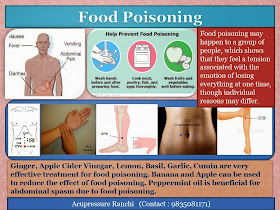Our
Biological Clock
Cells are the fundamentals of
life. All life’s processes happen in and by cells. One of the most amazing
characteristics of cells is the fact that they know what time it is. That’s why
we humans possess a ‘biological clock’ is well known. During the night our body
works differently from the daytime: we need sleep, at a certain moment it is
nearly impossible to stay awake.
Location of our biological clock
It is a very small piece of the brain (20 000
cells in all) just above the chiasma opticum (the place where
the optic nerves are crossing). The suprachiasmatic nucleus (SCN)
is no bigger than a quarter of a cubic millimetre. Because it is so close to
the optic nerve it can get information directly from the eyes. In newborn
babies this part of the brain is not yet ready; this explains why they do not
have a clear daily rhythm yet. In old people brain cells die, also in this
part, this explains why their rhythm often deteriorates. Especially when people
are demented this can give problems.
Our Biological Clock
Our biological clock controls our daily circadian rhythms
to conduct our body’s daily activities, such as when to wake, to sleep, to eat,
to drink, to release liquid or solid wastes from out body, to conduct functions
of organs in our body, such as body temperature, blood circulation, heat beats,
physical energy, mood, memory, woman’s period cycle, producing hormones,
enzymes, metabolisms, detoxing cycle, etc.
Disruption of the biological clock causes many kinds of
diseases such as disordered metabolic diseases (e.g. obesity, diabetes and
insulin resistance etc. and even ruin our life.
The organs in our body like heart, pancreas, liver,Gall
bladder, Kidney ,intestines etc. all have their own circadian rhythms. Each
organ produces hormones, enzymes and other molecules at various times of the
day. Our brain conducts coordination the functions of the various organs.
The green ribbon area shown means the best time for your body to relax,
detox, clean, and recover, etc. So, it is strongly recommended to rest and
sleep during this period, let your internal doctor has enough time to do
repair, and maintenance work.
To keep you healthy, you have to follow your biological clock to do your
work and rest! Rest is for your internal doctor to do its job to repair and
recover your body to the good normal conditions, and ready for next day! The
daily circadian rhythms are (military clock):
·
LUNGS MERIDIAN (03~05): Deep sleep situation; Body is fully
relax and rest; low blood pressure; heart beats, and breathing frequency, so
easy to pass away in this period; Sensitive in hearing. Lung help body detox.
Related emotions :
grief, intolerance
·
LARGE INTESTINE (05~07): Less secretion from kidney; the
body is fully recharged; Blood pressure and heart beats is increasing; Bod
temperature is increasing; Adrenal cortex hormone secretion is increasing; The
body is under awaking mode; good memory; Large intestine absorbs water &
some nutrients from wastes; Time to eliminate solid wastes stored.
Related emotions : guilt
·
STOMACH MERIDIAN (07~09): Adrenal cortex hormone secretion reaches high point, so, it is time for
high risk of strokes, or heart attack; Body temperature is increased slightly;
Blood circulation is accelerated; The immune system is enhanced; Liver has
completed detoxing job; Brain memory is strong in this period; Time for
Breakfast.
Related emotions :
disgust, greed
·
SPLEEN MERIDIAN (09~11): Spleen converts foods to blood, energy and different of secretion liquid
required by body, and also produces red blood cells; heart is working in full
power; body is energized and excited; good memory; The best time for work!
Related emotions :
worry, anxiety about the future
·
HEART MERIDIAN (11~13): Heart is still fully working; Positive mood; The body is at the highest
energy situation, tick a signal for lunch to recharge. Because blood pressure
and heart beats are high in this period, so do not drink alcohol.
Related emotions :
joy, anger
·
SMALL INTESTINE MERIDIAN (13~15): After lunch, feel drowsy and tired, need a nap (0.5 ~ 1
hour); Energy is decreasing, and reaction is slow. Small intestine absorbs
nutrition, and separate solid and liquid wastes.
Related emotions : insecurity, sadness
·
BLADDER MERIDIAN (15~17): Energy is restored. Blood sugar is increasing; Bladder stores wasted
liquid and releases body heat.
Related emotions : fright, impatient, restless
·
KIDNEY MERIDIAN (17~19): High work efficiency; good time for exercises; more sensitive in smell
and taste; Kidney starts to store nutrition absorbed.
Related emotions : fear, indecision
·
PERICARDIUM/CIRCULATION-SEX (19~21): Blood pressure is increasing; unstable emotion in the
hour of 19; fully store food, and water, the heaviest weight in a day; rapid
response reaction; Good mood; Pericardium cleans pathogens around the heart.
Related emotions :
hurt, extreme joy,
jealousy, regret
·
TRIPLE WARMER/THYROID MERIDIAN (21~23): Good memory; body temperature is decreasing slightly;
feel sleepy; function of the immune system is enhanced; white blood cells are
increasing; breathing and heart beats slows down; hormone secretion is
decreasing, etc.
Related emotions :
hopelessness,
depression, despair
·
GALL BLADDER MERIDIAN (23~01): Body needs to rest; cell repair work starts; produce new cells for
replacement; Gall bladder released bile to aid fat digestion; PSNS starts to
work; Marrow produces blood cells; Start sleep.
Related emotions :
rage, wrath
·
LIVER MERIDIAN (01~03): Liver starts detoxing; producing enzymes; hormones; metabolism; blood
cells, etc. Sensitive to pain; Most of organs are in rest or recovery mode.
Related emotions : anger, unhappiness


